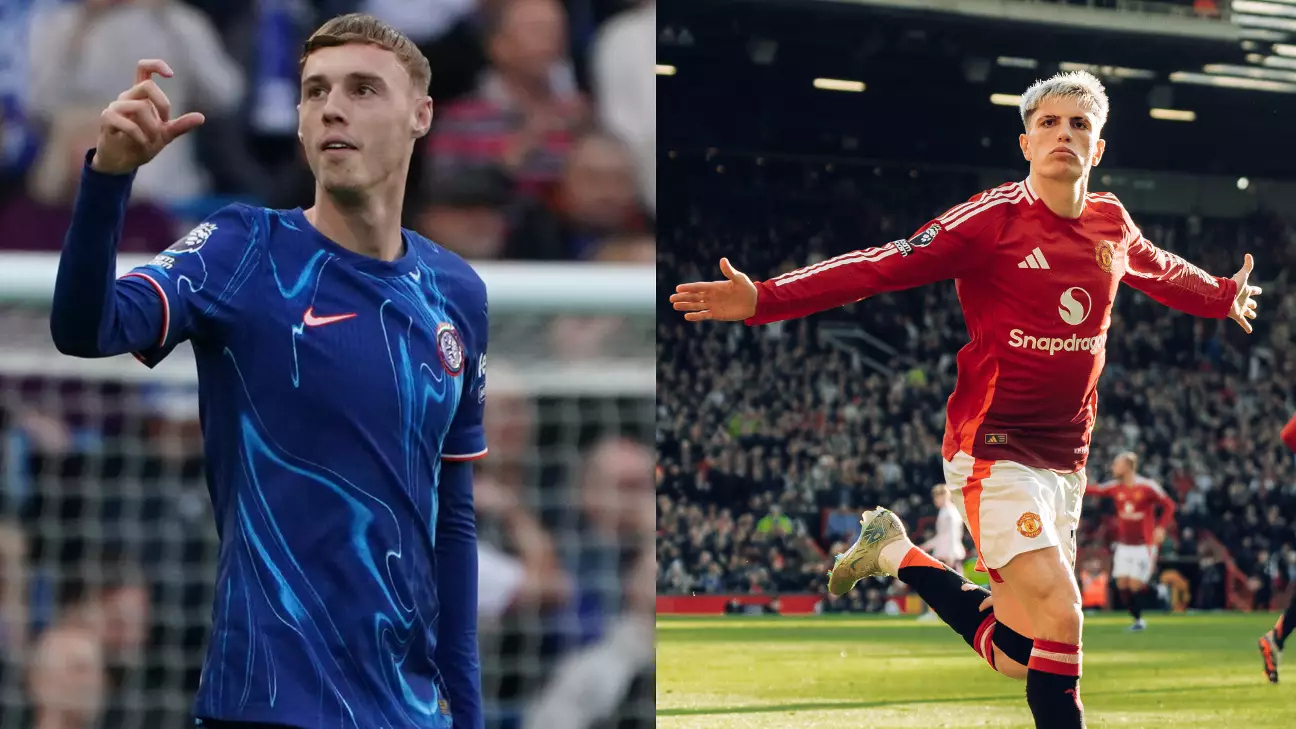As the football season progresses, the anticipation surrounding matches heightens, particularly when historic rivals such as Manchester United and Chelsea prepare to face off. This weekend’s clash at Old Trafford promises a spectacle that goes beyond just the 90 minutes on the pitch. The outcome of these high-stake encounters often reflects the sum of strategic planning, on-field execution, and emotional narratives that shape the fans’ experience.
Manchester United’s early campaign—you could say an ongoing crisis—has left them grappling in the lower end of the table, significantly impacting their longstanding reputation. In contrast, Chelsea, under the astute management of Enzo Maresca, appears rejuvenated after years of turbulence. The tactical battle between coaches could be as fascinating as the game itself, posing essential questions about managerial impact and player performance under pressure.
Enzo Maresca’s tenure at Chelsea has ushered in a new tactical ethos that has begun to take form. Rooted in his vast experience—ranging from his days as a versatile midfielder to his tenure as Pep Guardiola’s assistant—Maresca’s methodology emphasizes rigorous preparation and tactical fluidity. The ability to translate training ground exercises to match scenarios is paramount in modern football, and Maresca appears to embody this principle effectively.
A noteworthy aspect of Maresca’s approach is his focus on ball possession not merely to dominate play, but to craft potent offensive systems that create relentless opportunities. Players are trained to support one another, leading to attacking transitions that continually pressure opponents. This strategy has enabled Chelsea to harness their young talent, among which Cole Palmer has emerged as a standout player whose trajectory could redefine his career.
The adaptation of a ‘risk-reward’ philosophy further sets Maresca apart from many contemporaries. Drawing an analogy with chess—where strategic sacrifices often yield significant advantages—Maresca’s tactics can sometimes leave Chelsea vulnerable defensively in a bid to maintain attacking supremacy. This balance between aggression and caution is a hallmark challenge for emerging managers as they seek to make their mark.
As we pivot our focus to the MLS, the playoff journey of Inter Miami showcases a different but equally compelling narrative. Lionel Messi’s arrival has not only elevated the profile of the club but has also revitalized the entire league. Their upcoming series against Atlanta United serves as a quintessential example of sports narratives intertwining with star power, as fans are drawn to the magnetic aura that Messi exudes.
The anticipation for their encounters exceeds regular match expectations. A packed crowd awaits as supporters rally not just for an opportunity to see Messi in action, but also to witness the legacy of Gerardo “Tata” Martino, who significantly contributed to Atlanta’s success. His return to the city with Inter Miami will amplify the emotional nuances surrounding the match, likely leading to an electric atmosphere in the stadium.
What propels Inter Miami’s quest for glory is not solely Messi’s presence but also the unity and resilience illustrated by the squad. As they approach the brink of making history with their first ever MLS Cup appearance, the stakes are increasingly high, and outcomes will be determined through tactical ingenuity and teamwork as much as individual brilliance.
Meanwhile, the landscape at Manchester United continues to shift under pressure. The decision to relieve Erik ten Hag of his duties comes as a pivotal moment, emphasizing the merciless nature of modern football management. The appointment of Ruben Amorim, a young, proactive coach, reflects a broader search for innovation and effectiveness amid a backdrop of poor performance.
While Amorim enters a tumultuous environment, his reputation as a capable tactician could provide the spark the club desperately needs. However, the real question looms: Can he navigate the high expectations associated with a club of Manchester United’s stature while implementing lasting change?
The discontent among fans, fueled by mismanagement and a lack of clear direction, highlights the need for cohesive action from the club’s leadership. Acquisition strategies and managerial decisions should aim to foster stability rather than react to crises after they arise. This transitional phase for the club is indicative of the broader issues that plague elite football—namely, the delicate balance between maintaining a competitive edge and fostering a nurturing environment for growth.
As we catalog the various narratives unfurling across leagues, it becomes clear that football’s charm lies in its intricacies—be it in the tactical prowess showcased in an enthralling derby match or the eccentricities surrounding a playoff bid. Whether it’s Chelsea’s ascent under Maresca, Messi’s enduring legacy in the MLS, or Manchester United’s quest for redemption with new management, these stories elucidate the multi-dimensional nature of the sport.
Ultimately, it’s not just about winning; it’s about how teams and managers negotiate the labyrinth of challenges that come their way. As fans, we look forward to witnessing the magic that unfolds, shaped by history, strategy, and, of course, the beautiful game itself.

